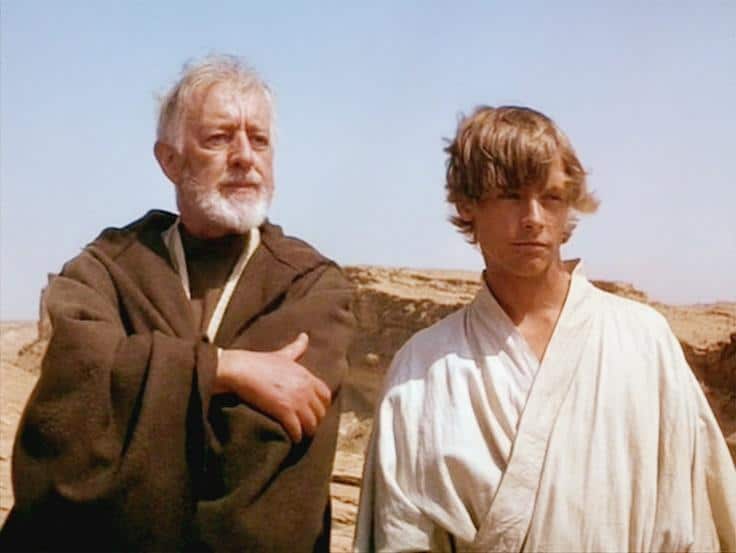Can Star Wars, more than 40 years after it first hit the cinemas, be used to develop virtuous language and behaviour in young people today?
In the fourth and final entry for Star Wars Day, Jason Metcalfe writes for the Social Sciences Birmingham Forum:
See also Why The Empire Lost: Star Wars’ Cyber-Security Warning
Why The Empire Lost: Star Wars’ Cyber-Security Warning
Luke, Obi-Wan, & US Foreign Policy: Thoughts on Star Wars Day
For those out of the loop, May 4th was Star Wars Day, selected as a pun on the famous phrase of the series: “May the Force Be With You”. The date is marked internationally by fans who recognise and celebrate the existence of the franchise.
But is there more than a celebration here? Can Star Wars, more than 40 years after it first hit the cinemas, be used to develop virtuous language and behaviour in young people today?
The original film not only featured ground-breaking special effects on a relatively small budget. It was the first of the science fiction/space opera western genre, introducing us to an immersive universe packed with new technologies, worlds, and memorable characters.
Star Wars also resonated with a worldwide audience with the array of moral and spiritual elements throughout the films. The original trilogy (1977-1983) focuses on the story of Luke Skywalker, a teenager from a farm who takes a stand against an evil empire whilst resisting the lure to join his father in ruling the galaxy. The more divisive prequel trilogy (1999-2005) has a similar theme, showing the audience how the fear, anger, and hate of Anakin Skywalker were his hamartia — fatal flaw — leading him down the path to become Darth Vader. Each protagonist in the respective trilogies experience a series of moral and spiritual lessons and face difficult decisions, ultimately shaping his destiny to be either the saviour or villain of the galaxy far, far away.
The use of stories is a central part of character education. Research at the Jubilee Centre for Character and VirtuesSt on the Knightly Virtues project has shown the positive effects of classical literature on pupils’ ability to apply virtue language and concepts in personal contexts. Many of the research participants in this project displayed improved virtuous behaviour as observed by parents, participants, and teachers.
While there is plentiful research that shows reading and shared reading are beneficial for young people, we need to understand whether it is possible to use films as a medium to enhance the virtuous language and behaviour. Star Wars has not just been an on-screen journey — it can also lead to an exploration of its resonance for audiences, inspiring them not just for a dedicated day but for a year-round celebration of virtue.

